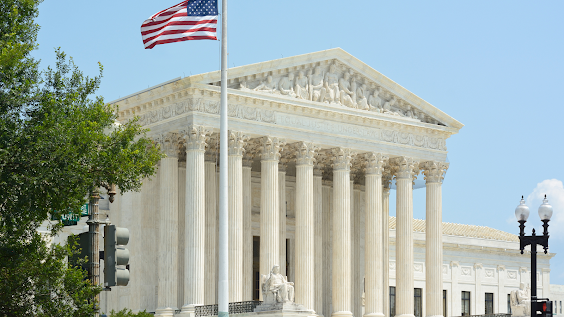The ruling issued this Monday, May 16, by the Supreme Court in the Patel case leaves any immigrant who has made a mistake during a procedure that is subsequently rejected by an immigration officer or judge on the verge of deportation.
Until the ruling, there was the option of appeal to the federal courts, including the highest court of justice; however, the judges, in a 5-4 split decision, ruled against the foreigners seeking judicial review.
Justice Amy Coney Barrett wrote in the ruling that federal courts are “categorically prohibited” from considering such immigration matters because they lack jurisdiction in federal courts. Furthermore, the only exceptions, according to the Supreme Court ruling, are constitutional issues or questions of law.
All of this stems from the Supreme Court's review of the case of Pankajkumar Patel, an Indian immigrant, and his wife, who entered the country illegally without being inspected at the border in the 1990s. In 2012, the Department of Homeland Security (DHS) determined that Patel was "deportable" for being present "without inspection" in the country.
Patel sought discretionary relief from deportation, which requires demonstrating, among other things, clearly and beyond a reasonable doubt, that he is not inadmissible to the United States, according to the law. However, his admissibility was called into question because, when he applied for a driver's license in the state of Georgia in 2008, he checked a box indicating that he was a U.S. citizen, which he was not.
Finally, at his deportation hearing, the Indian-born immigrant argued that it was a mistake, but the immigration judge presiding over the trial "rejected" Patel's arguments and denied his request for adjustment.
The Supreme Court decision states that a false declaration that a person is a U.S. citizen when they are not, not only empowers the government to reject an application for a benefit, but also makes the person legally inadmissible for receiving residency because they misrepresented themselves as a citizen.
The ruling represents a severe blow to an undetermined number of immigrants in the process of obtaining a benefit, affected by an adverse decision made at the discretion of an official, or to thousands more who, tomorrow, may apply for an available legal benefit and, during the process, make an unintentional error that becomes an unwanted and unexpected cause of deportation.
Finally, the Supreme Court ruled that foreigners who make false statements during immigration proceedings and claim a legal status they do not possess cannot appeal decisions made by the Department of Justice (DOJ) when they are denied benefits or a deportation order is issued. Likewise, federal law “prohibits judicial review of any ruling related to the granting of relief” under the Immigration Act.
News report based on information from: Univision

